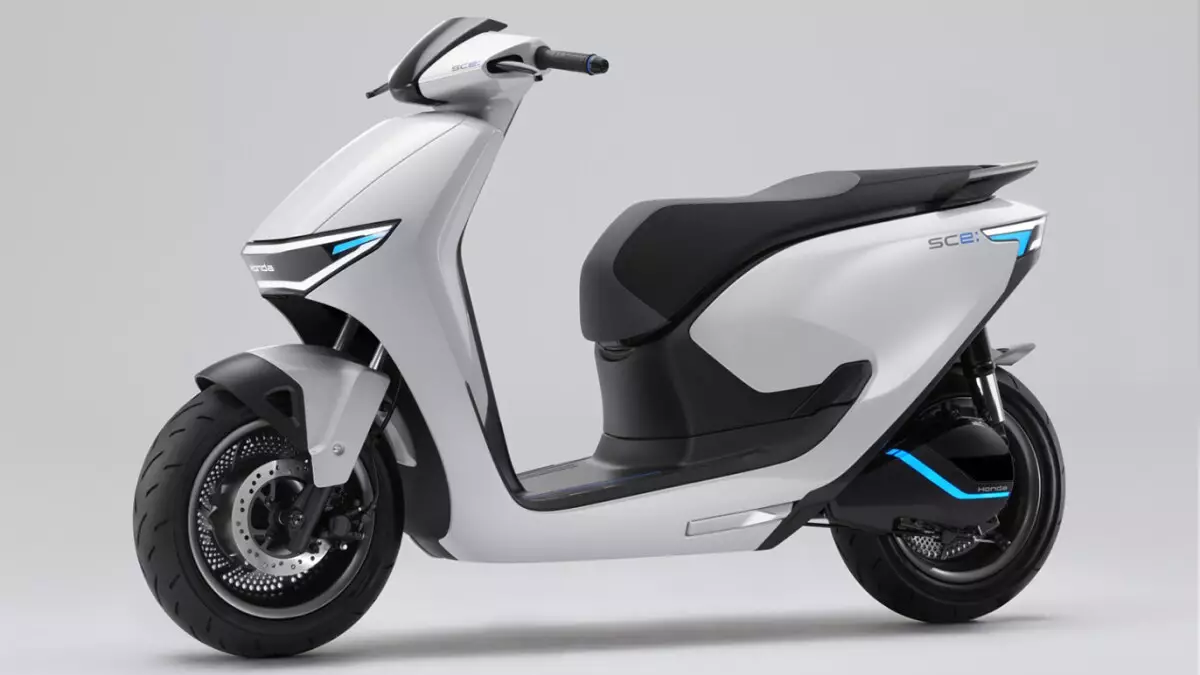Electric mobility continues to transform the landscape of personal transportation, particularly in the two-wheeler segment. With an increased focus on sustainability and emission reductions, several key players in the automotive industry are pivoting toward electric vehicles (EVs) in 2025. This article will delve into the anticipated electric scooters set to launch in India’s burgeoning market, shedding light on features, competition, and the broader implications for the industry.
The promotion of electric two-wheelers has gained significant momentum, with a wide array of brands making strides in this evolving paradigm. Manufacturers are compelled to innovate and adapt as more consumers gravitate toward eco-friendly options. This shift is not merely a passing trend; companies like Honda, TVS, and Suzuki are readying themselves to seize this opportunity. As we approach the Bharat Mobility Global Expo 2025, which promises to showcase cutting-edge innovations, excitement builds around the emerging electric scooter market.
Honda Motors is preparing to unveil its inaugural electric scooter for the Indian market in March 2025, known as the Honda Activa EV. This anticipated vehicle is expected to mirror the design aesthetics of the iconic Activa 110, targeting both loyal customers and new consumers. Key features will potentially include dual Honda Mobile Power Packs designed for easy detachment and swapping—significantly addressing range anxiety among users.
Moreover, innovative technological advancements are expected to be integrated, such as a fully digital touchscreen console and a keyless ignition system. These features not only enhance user experience but also position Honda to compete directly with leading players like Ola S1 and Ather 450. With a projected range exceeding 100 kilometers on a single charge and a competitive price point near Rs 1 Lakh (ex-showroom), Honda’s foray into electric scooters could redefine the standards within the segment.
Not to be overlooked, TVS Motors is also forging ahead with plans to introduce two electric vehicles within the next half-year. One of these rides is speculated to be an electric variant of the much-loved TVS Jupiter. This move aims to cater to the everyday commuter, enhancing accessibility to electric mobility for the average consumer. The Jupiter EV is expected to provide a practical range of 70-80 kilometers on a single charge, which is well-suited for urban commuting patterns.
Pricing is expected to remain below the Rs 1 Lakh threshold, aligning with consumer expectations for value in the EV market. This strategic positioning could help TVS solidify its presence amid strong competition, paving a path for broader acceptance of electric scooters among the masses.
In parallel, Suzuki is charting its electric course with the launch of its Burgman EV, slated for production start in December 2024. Though details remain scarce, Suzuki is reportedly targeting a production goal of 25,000 units annually, indicating a robust commitment to this segment. Unlike the earlier speculation of a detachable battery setup, the Burgman EV is anticipated to feature a fixed battery pack, which may simplify production while also meeting consumer needs for reliability.
The unveiling of the Burgman EV at the Bharat Mobility Global Expo 2025 will likely be a pivotal moment, as it showcases Suzuki’s readiness to adapt to the electric landscape. While pricing information is yet to emerge, the anticipation surrounding this electric model reflects the growing consumer demand for versatile and innovative electric mobility solutions.
As we edge closer to 2025, the electric two-wheeler market is poised for significant transformation. While Honda, TVS, and Suzuki are gearing up to make their mark with innovative offerings, the broader context of environmental responsibility and consumer demand for sustainable transport solutions paints a promising picture for the future. The imminent launches at the Bharat Mobility Global Expo will not just introduce new products, but rather herald a new era of mobility in India. With an increasingly competitive landscape and a growing awareness of the benefits of electric transportation, consumers can expect a diverse range of choices, making this an exhilarating time for the electric two-wheeler segment.


Leave a Reply